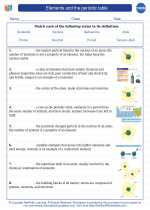What are Hormones?
Hormones are signaling molecules that are produced by glands in the endocrine system and are released into the bloodstream. They act as chemical messengers, regulating various physiological processes such as growth, development, metabolism, and reproduction.
Types of Hormones
Hormones can be classified into three main groups:
- Steroid Hormones: These are derived from cholesterol and include hormones such as cortisol, estrogen, and testosterone.
- Peptide Hormones: These are composed of amino acids and include hormones such as insulin, growth hormone, and oxytocin.
- Amino Acid-Derived Hormones: These are derived from amino acids and include hormones such as epinephrine and thyroxine.
Functions of Hormones
Hormones play a crucial role in various bodily functions, including:
- Regulating metabolism
- Controlling growth and development
- Maintaining electrolyte balance
- Regulating reproductive processes
- Managing stress responses
Regulation of Hormones
Hormone levels are tightly regulated through feedback mechanisms involving the endocrine glands and target organs. Negative feedback loops help maintain hormone levels within a narrow range, ensuring proper physiological function.
Common Hormones and Their Functions
| Hormone | Source | Function |
|---|---|---|
| Insulin | Pancreas | Regulates blood glucose levels |
| Estrogen | Ovaries (in females) and testes (in males) | Regulates menstrual cycle and secondary sexual characteristics |
| Testosterone | Testes (in males) and ovaries (in females) | Stimulates the development of male secondary sexual characteristics |
| Thyroid Hormones (T3 and T4) | Thyroid gland | Regulate metabolism and growth |
Disorders Related to Hormones
Imbalances in hormone levels can lead to various disorders, including diabetes, hypothyroidism, hyperthyroidism, and infertility. These conditions often require medical intervention to restore hormonal balance.
Study Guide for Hormones
To effectively study hormones, consider the following key points:
- Understand the different types of hormones and their chemical composition.
- Learn about the functions of major hormones and their sources in the body.
- Examine the mechanisms of hormone regulation, including feedback loops.
- Explore common hormonal disorders and their impact on human health.
◂Chemistry Worksheets and Study Guides High School. Elements and the periodic table
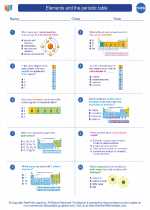
 Worksheet/Answer key
Worksheet/Answer key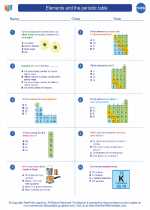
 Worksheet/Answer key
Worksheet/Answer key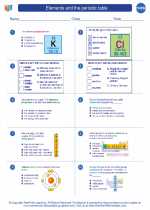
 Vocabulary/Answer key
Vocabulary/Answer key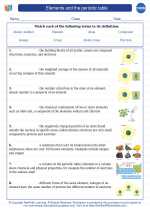
 Vocabulary/Answer key
Vocabulary/Answer key
 Vocabulary/Answer key
Vocabulary/Answer key